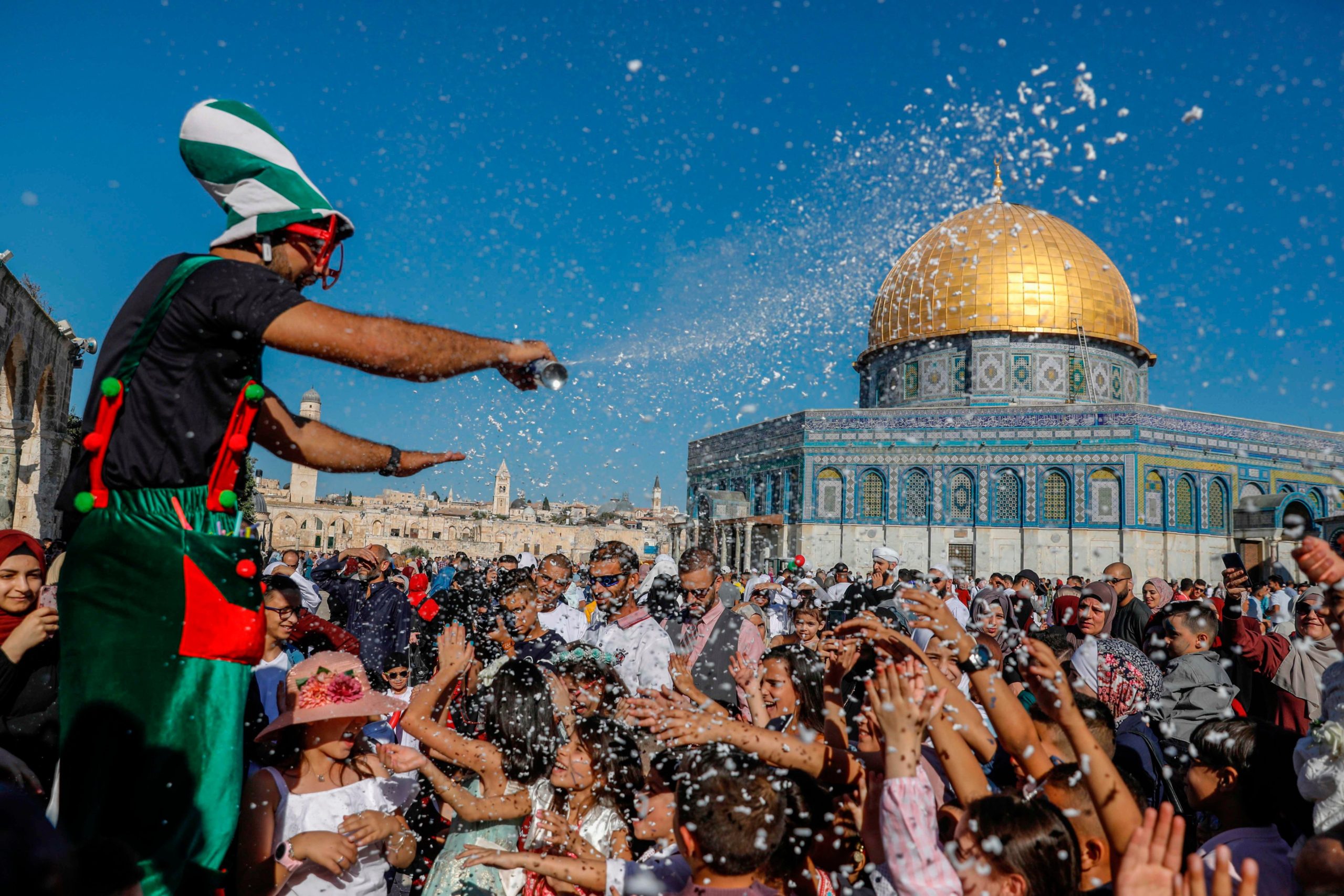This content is about 10 key festivals celebrated in Islam. It includes information about each festival, including their significance and how they are observed. The festivals mentioned include Eid al-Fitr, Eid al-Adha, Mawlid al-Nabi, Laylat al-Qadr, Ashura, Muharram, Isra and Mi’raj, Ramadan, Lailat al-Miraj, and Hijra. Each festival has its own unique meaning and rituals, and they are celebrated throughout the year. These festivals play an important role in the Islamic faith, providing opportunities for prayer, reflection, remembrance, and community gathering.
10 Key Festivals Celebrated in Islam
1. Eid al-Fitr
Eid al-Fitr, also known as the festival of breaking the fast, is celebrated at the end of Ramadan. It marks the conclusion of the holy month of fasting and is a time of joy and gratitude. Muslims gather for prayers, visit family and friends, exchange gifts, and enjoy special meals. It is a time of giving, forgiveness, and bringing the community together.
2. Eid al-Adha
Eid al-Adha, also known as the festival of sacrifice, commemorates the willingness of Prophet Ibrahim (Abraham) to sacrifice his son as an act of obedience to God. It is celebrated for three days and involves the sacrifice of a lamb, which is then divided into three parts – one for the family, one for relatives and friends, and one for the less fortunate. It is a time of charity, reflection, and remembrance of the importance of faith.
3. Mawlid al-Nabi
Mawlid al-Nabi marks the birth and the life of Prophet Muhammad, the last messenger of Islam. It is observed with gatherings and processions, where believers recite poetry, sing praises, and listen to lectures about the life, teachings, and achievements of the Prophet. The aim is to deepen the understanding and love for the Prophet and his message among the followers of Islam.
4. Laylat al-Qadr
Laylat al-Qadr, also known as the Night of Power, is considered one of the holiest nights in Islam. It commemorates the night when the first verses of the Quran were revealed to Prophet Muhammad. Muslims spend the night in prayer, reflection, and seeking forgiveness. It is believed that worship on this night is worth more than a thousand months of worship, and those who seek the blessings of this night are rewarded immensely.
5. Ashura
Ashura is a significant festival that falls on the tenth day of Muharram, the first month of the Islamic calendar. It holds different meanings for different sects within Islam. For Sunni Muslims, it commemorates the day when Prophet Moses and the Israelites were saved from Pharaoh’s tyranny. For Shia Muslims, it marks the martyrdom of Imam Hussein, the grandson of Prophet Muhammad, in the Battle of Karbala. It is a day of mourning, fasting, and reflection on the lessons of sacrifice, justice, and resilience.
6. Muharram
Muharram is the first month of the Islamic lunar calendar and is considered a sacred month by Muslims. It is observed with fasting, prayers, and remembrance of significant events in Islamic history, most notably the Battle of Karbala and the martyrdom of Imam Hussein. The month is an opportunity for Muslims to reflect upon the sacrifices made by their predecessors and to renew their commitment to faith, justice, and compassion.
7. Isra and Mi’raj
Isra and Mi’raj, also known as the Night Journey and Ascension, commemorates the journey of Prophet Muhammad from Mecca to Jerusalem and his ascension to the heavens. It is celebrated with prayers, gatherings, and lectures about the significance of the event in Islamic theology and its implications for the Muslims’ faith. It serves as a reminder of the unshakable belief in the divine connection between the Prophet and God.
8. Ramadan
Ramadan is the holy month of fasting for Muslims worldwide. It is a time of self-reflection, increased devotion, and spiritual growth. Muslims fast from dawn to sunset, abstaining from food, drink, and other physical needs. The month is marked by increased prayer, recitation of the Quran, acts of kindness, and charity. Ramadan teaches self-discipline, empathy for those less fortunate, and gratitude for the blessings of life.
9. Lailat al-Miraj
Lailat al-Miraj, meaning the Night of Ascension, commemorates the night when Prophet Muhammad was transported from Mecca to Jerusalem and then ascended to the heavens. It is a night of prayer, reflection, and seeking closeness to God. Muslims recite prayers and engage in acts of worship to honor the miraculous journey of the Prophet.
10. Hijra
The Hijra, or the Migration, marks the migration of Prophet Muhammad from Mecca to Medina. It was a significant event that established the first Islamic state and marked the beginning of the Islamic calendar. The festival is a time for Muslims to remember the importance of unity, perseverance, and resilience in the face of adversity. It serves as a reminder of the sacrifices made to spread the message of Islam and to establish a just and compassionate society.
